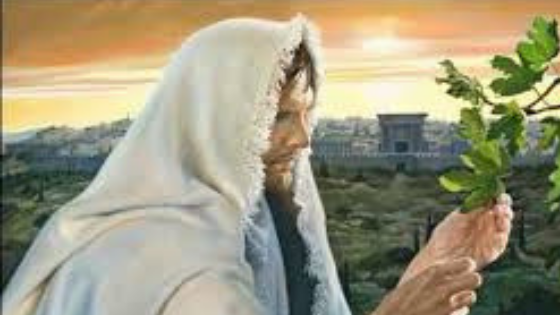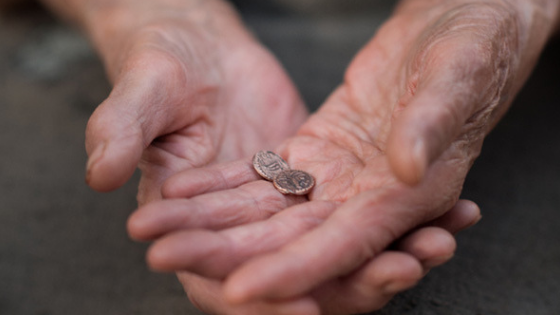
Feast of Christ the King – 26 November 2017
Ez. 34:11-1, 15-17; Ps 23:1-3, 5-6; 1Cor15:20-26, 28; Matthew 25:31-46
Theme: When the Son of Man comes…
This is the third parable in chapter 25 that portrays the end time (eschatology) as a time to be ready to account for the way we have lived our lives. This is not strictly a parable but rather a “stylized picture of the end of history” when all people (‘nations’) – Jews and Gentiles – will be brought to account before God. Matthew blends eschatology and ethics saying how we have behaved towards one another is the chief criterion in God’s action to bring history to its completion (Kee, Young & Froehlich: 1973:327). Brown, R.M. (1984:127-141) says that this narrative is a ‘parable-in-reverse’. Jesus begins with the unfamiliar to the listeners’ experience (angels and final judgement) to the familiar (visiting the sick, feeding the hungry etc.) and in the middle connecting these two are sheep and goats, the livelihood of the people.
“When the Son of man comes…” (v. 31), the way Jesus spoke about himself refers to Daniel’s vision (7:13) of the end times – apocalyptic genre. The angels are all with the Son of Man – their work as messengers and caring for the world having been completed. Gathered with the angels are ‘all the nations’. The king is not addressing individuals but nations. “He will separate them one from another, as a shepherd separates sheep from goats” (32b). Sheep and goats pastured together but were separated when it was time to go to market. The goat is not a symbol of wickedness! What I find interesting is that the sheep have to be led and cared for while goats lead and are hardy and more ‘independent’. Does it take the needy to care for the needy? Are the self-sufficient unaware of the needy around them? Are the sheep the poor in spirit, merciful, etc. of the beatitudes? Are the goats the self-righteous who think that following the law and living individualistically are what life is about? Are we faced here with the Pharisee and the Publican; the Samaritan and the priest and the Levi? The shock in this ‘parable’ is that we shall be judged on how we have treated our needy neighbors. What R.M. Brown also points out is that the nations are separated and are on trial here. So this is a question of Social Morality. Nations are called to account by God for how they had treated needy nations. Have the richer nations taken note and helped the poorer/poorest nations? Have strangers (refugees) been welcomed and given a home? The Kingdom of God comprises the saints who have lived, giving to the needy as a way of life, according to the example of Jesus Christ as God’s beloved Son.
I have always found this picture of the final judgement frightening and challenging. This is what I (we) am/are going to be judged on! Right now I stand with one (half!) foot in the sheep’s camp and the other (and a half!) with the goats. This was what Dennis Linn (1994) concluded in his book Good Goats: healing our image of God (see source below).
So what is the Good News of this ‘parable’? The narrative begins with “When the Son of Man comes…” It is still going to happen so NOW is the time to change to be ready. It is time now to become accountable for the poor, the sick, the prisoners and the strangers of our world – not so much as individuals (though this is where it begins) but as communities of Believers across the nations affecting policies at the risk of being told not to mix religion with politics!
For Reflection and Discussion: How does this gospel reading challenge you? Does it help you to live Advent more as the NOW-time to change in preparation for Christmas and the Second Coming?
Bibliography: Brown, R.M. Unexpected News. (Philadelphia: 1984); Kee/Young/Froehlich. Understanding the New Testament. (New Jersey: 1973); Linn, D et al. Good Goats. (New York: 1994); McKenzie, J.L. Dictionary of the Bible. (New York: 1965).
This week’s Sunday Gospel Commentary was prepared by
Bernadette Chellew, South Africa. [Bat Kol Alum 2008]
Email address: btrnchellew@gmail.com
[Copyright © 2017]
…………………………………..………………………………
PLEASE NOTE: The weekly Gospel commentaries represent the research and creative thought of their authors, and are meant to stimulate deeper thinking about the meaning of the Sunday Scriptures. While they draw upon the study methods and sources employed by the Bat Kol Institute, the views and conclusions expressed in these commentaries are solely those of their authors, and do not necessarily represent the views of Bat Kol. Questions, comments and feedback are always welcome.
…..………………….……………………………………..
Bat Kol Institute for Jewish Studies, Jerusalem
1983-2017
“Christians Studying the Bible within its Jewish milieu, using Jewish Sources.”
gill@batkol.info Website: www.batkol.info




November 27, 2017
Bernadette, you brought some challenging insights to this reading that I hadn’t thought of before. It is such a powerful passage
and often thought to be key in our lives as faithful disciples. Thank you for adding to my reflections for Advent.